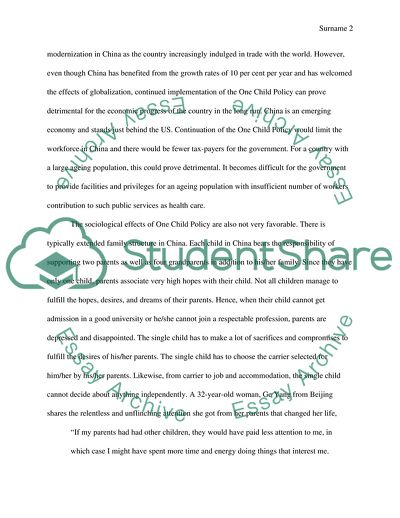Cite this document
(Effects of One-Child Policy in China Essay Example | Topics and Well Written Essays - 2250 words, n.d.)
Effects of One-Child Policy in China Essay Example | Topics and Well Written Essays - 2250 words. https://studentshare.org/sociology/1826058-the-effects-of-chinas-one-child-policy
Effects of One-Child Policy in China Essay Example | Topics and Well Written Essays - 2250 words. https://studentshare.org/sociology/1826058-the-effects-of-chinas-one-child-policy
(Effects of One-Child Policy in China Essay Example | Topics and Well Written Essays - 2250 Words)
Effects of One-Child Policy in China Essay Example | Topics and Well Written Essays - 2250 Words. https://studentshare.org/sociology/1826058-the-effects-of-chinas-one-child-policy.
Effects of One-Child Policy in China Essay Example | Topics and Well Written Essays - 2250 Words. https://studentshare.org/sociology/1826058-the-effects-of-chinas-one-child-policy.
“Effects of One-Child Policy in China Essay Example | Topics and Well Written Essays - 2250 Words”. https://studentshare.org/sociology/1826058-the-effects-of-chinas-one-child-policy.


